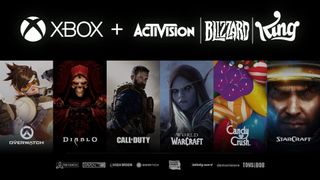Microsoft is working to finalize the acquisition of Activision Blizzard for $68.7 billion. If approved, it will not only be the most expensive acquisition in the long history of the video game industry, but among the most consequential. For Xbox Series X owners and Game Pass subscribers, this deal will be a dream come true. For Sony and, more importantly, early PS5 adopters, it has all the makings of a nightmare. And this news has brought longstanding concerns surrounding industry consolidation and embattled Activision CEO Bobby Kotick's position back to the fore, with little offered in the way of answers. All-in-all, it's been a busy day.
Should the transaction close by the end of its 2023 fiscal year, Microsoft will come into July as the third-largest gaming company (by revenue) in the world. It'll have studios like Blizzard Entertainment, Infinity Ward, Raven Software, Sledgehammer Games, and Treyarch working on everything from Call of Duty to World of Warcraft, Diablo to Warzone, all published under the Xbox Game Studios banner. Should it skirt antitrust laws, this deal is going to have a sweeping impact on the shape of the industry.
What does this mean for Activision Blizzard?
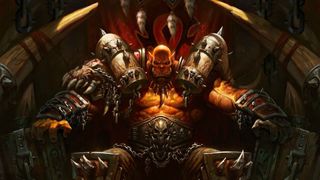
With the story still developing, it's difficult to get a sense of how Microsoft will manage Activision Blizzard. We could perhaps look to how the company handled ZeniMax following its acquisition in 2021 to get an idea. Microsoft allowed existing publishing agreements to stand – Deathloop and Ghostwire Tokyo arriving as timed PS5 exclusives; Fallout 76 and The Elder Scrolls Online remain on PlayStation platforms – while green-hued walls were erected around everything else. Arkane's Redfall and Bethesda's Starfield are Xbox Series X exclusives, while the same appears to be true of The Elder Scrolls 6 and MachineGames' Indiana Jones.
You can already begin to see the parallels emerging. Activision has a marketing deal in place with Sony (something Microsoft lost when PS4 asserted its dominance over Xbox One), which brings exclusive Call of Duty content to PlayStation, which will need to run its course. Meanwhile, Warzone was designed as a free-to-play cross-platform title and Overwatch 2 has long been in development for PlayStation platforms, and it's likely little will change here. How easily the likes of Diablo 4 and World of Warcraft can be untangled from Battle Net for a platform of Xbox's choosing remains to be seen, although if Bungie could do it with Destiny 2 perhaps it's indeed possible. Ultimately, it seems likely that little will change in the short-term, particularly as Phil Spencer notes that "Activision Blizzard games are enjoyed on a variety of platforms and we plan to continue to support those communities moving forward."
We're yet to fully grasp what this all means for the future of mainline Call of Duty titles. It's among the biggest unanswered questions in all of this, along with whether embattled CEO Bobby Kotick will retain his position and whether Microsoft can reckon with a business that is currently under investigation as part of an ongoing Activision Blizzard lawsuit. That's key in all of this, following reports of a contemptuous company culture and allegations of sexual abuse and harassment at Activision Blizzard. Questions are being asked today on these all-important latter points, but it's going to take some time for us to receive answers.
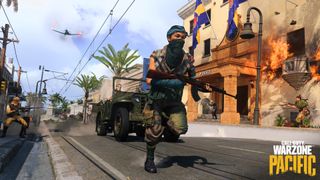
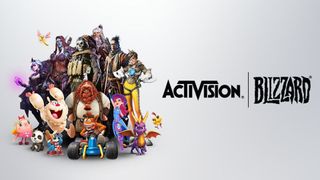
While it wasn't addressed outright by Phil Spencer, Microsoft's CEO of Gaming, there are ongoing investigations of Activision Blizzard following allegations of abuse and harassment by employees across the company. To better understand the current investigations, read this explainer on the Activision Blizzard lawsuit.
We can speculate on the former, however. While I can't predict the future, I could at the very least see a marketing campaign come summer 2023 positioning the Xbox Series S as an affordable, premium Call of Duty machine – the first step in a long process to realign the series with the Xbox platform. Let's be honest: $70 billion spent is a statement of intent. I wouldn't be surprised to see the series go platform exclusive to Xbox after 2023, although the loss to Sony and the PlayStation community is simply incalculable. Say what you will about the FPS, but it remains one of (if not the) biggest franchises in the western world. If Call of Duty is exclusive to the Xbox ecosystem, it won't be a question of if Microsoft is able to recapture the ground it ceded to Sony in the last generation, but rather a question of when.
Sony recently revealed the top 20 PlayStation Store downloads of 2021 and Call of Duty Vanguard was number two in the US/Canada, while Black Ops Cold War also ranked; for PS4, three different Call of Duty games made the list, while Vanguard placed second for free-to-play games behind Fortnite. Factor in physical Call of Duty sales, not to mention EU territories, and it's easy to see why Microsoft would be willing to throw so much money behind this acquisition. It effectively captures one corner of the all-important casual-leaning market; developer King Studios and Candy Crush another, furthering Microsoft's push into mobile.
Should the acquisition of Activision Blizzard complete, Microsoft's span of internal development studios will rise to 30. They are complemented by an array of established publishing support studios (helping to manage external studios and releases across PC, Cloud, and mobile devices), and road-tested esports production infrastructure – if you're wondering why we've heard so little about Halo Infinite's competitive aspirations, it's worth remembering that Activision purchased Major League Gaming back in 2016.
The Game Pass of it all
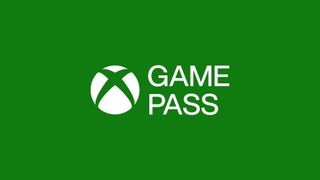
The question of which games will and won't come to PlayStation following this deal will be a point of speculation in the months ahead. However, it's worth noting how seismic this acquisition will be for Xbox Game Pass. Phil Spencer announced that the premium service "now has more than 25 million subscribers" – up from 18 million last year, no doubt bolstered by the launches of Age of Empires 4, Forza Horizon 5, and Halo Infinite – and that Xbox will "offer as many Activision Blizzard games as we can within Xbox Game Pass and PC Game Pass, both new titles and games from Activision Blizzard’s incredible catalog" once the deal closes.
Activision was founded over 40 years ago and Blizzard just celebrated its 20th anniversary – the catalogue of IP that Xbox's vast array of internal studios, not to mention its external partners, will be able to draw from in the future is absurd. The more immediate focus will be on what drops into Game Pass, adding further depth to the library. It's worth remembering that it took just weeks following the acquisition of ZeniMax for 30 of its games to land in the service – everything from cult classics like Arx Fatalis and Fallout Tactics for Xbox Game Pass PC, to almost complete collections of the DOOM, Dishonored, Fallout, Wolfenstein, and The Elder Scrolls series on console.
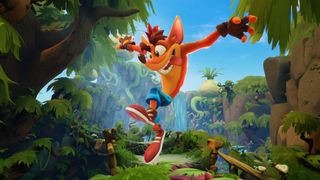
From Blur to Spyro the Dragon, Crash Bandicoot to Tony Hawk's Pro Skater; Project Gotham Racing, StarCraft, True Crime, and just so many more, the opportunities are a little dizzying to consider. The big news that's still forthcoming will be the arrival of 18 mainline Call of Duty titles into Game Pass, and confirmation that future games will launch day and date on the service. Even if Sony should somehow carve out a deal to ensure Call of Duty's continued presence on PS5 (outside of ongoing Warzone support), new Call of Duty games launching through Game Pass will be an undeniable value proposition – particularly as you factor in the ease of availability and ability to pre-load without a pre-order.
Rumors persist that PlayStation is preparing a subscription service all of its own. From the perspective of PS5 players out there, it's the right thing to do; Game Pass has been transformative for Xbox, and the idea of seeing new titles from PlayStation's incredible first-party studios – Sony Santa Monica, Naughty Dog, Insomniac, Guerrilla, and the rest – be so readily available from day one is an important step forward for the platform holder. How it'll look when held up against a Game Pass library of console and PC games from Xbox Game Studios, Activision, Blizzard, and Bethesda at a baseline remains to be seen, not to mention the ongoing EA Play integration which offers discounts on massive titles like Madden NFL and FIFA and their in-game currencies.
Eyes on the horizon
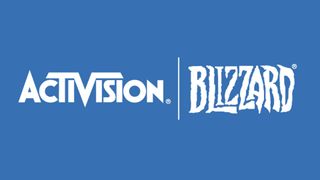
Important discussions will be had in the months ahead surrounding the ongoing consolidation and monopolization of the video game industry. It was only last week that Take-Two Interactive announced its intent to buy Zynga for $12.7 billion, while Embracer Group, Epic Games, Tencent, and PlayStation Studios – alongside Microsoft – have shown no desire to end these spending sprees. Whether it's good for players and for gaming, as a whole, for companies to have such dominance over large swaths of the industry remains to be seen, although it certainly looks like the reign of independent studios is over.
For now, all we're able to do is wait. This is a complicated deal subject to all manner of antitrust and regulatory investigations, plenty could change between now and June 2023. Well, we can wait and speculate. Plenty of that will be done in the months ahead too, as the video game industry attempts to get its head around such a monumental, unexpected change to the state of play.
